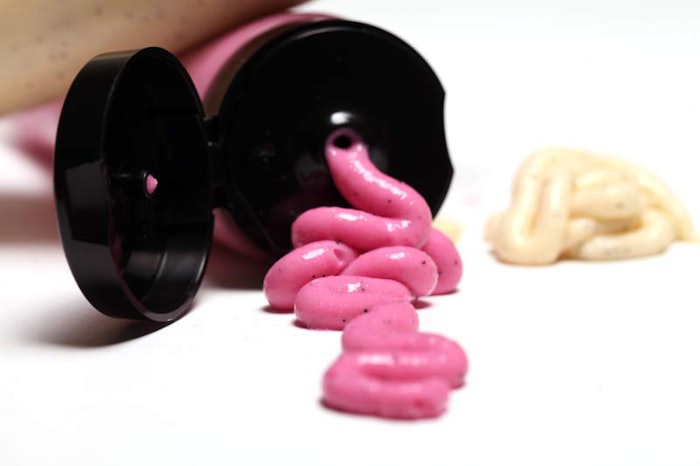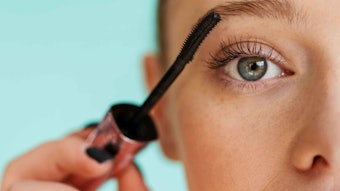
Now that California has finally banned microbeads after a lengthy legislative process, the Michigan House of Representatives is mulling a ban and members of the cosmetics and personal care industries have voiced their testimonies to lawmakers on the matter.
The latest bill introduced by Representative Rick Outman, HB 4345, states that a person “shall not manufacture for a sale a personal care product, except for an over-the-counter drug, that contains plastic microbeads.” The ban would phase out these particle abrasives, which studies have shown represent a threat to marine life, from being used in personal care and skin care products including facial scrubs starting Dec. 31, 2017.
In a recent testimony to lawmakers, a number of industry and environmental organizations stated they support HB 4345, although some are calling for the need for a national legislation as well as a clearer definition of non-biodegradable which would close up possible loop holes in the legislation.
Karin Ross, director of government affairs for the Personal Care Products Council, said she supports the bill in a recent testimony to the House Standing Committee on Natural Resources.
"Ahead of any legislative proposals, council members voluntarily committed to discontinue formulating with microbeads in favor of other viable alternatives," Ross said in a testimony for the hearing on HB 4345. "Our members elected to move ahead with product reformulation ahead of any peer-reviewed science."
Ross noted the Illinois model has become the new basis for new laws in seven additional states: Connecticut, Colorado, Indiana, New Jersey, Maine, Maryland and Wisconsin. Illinois became the first U.S. state to ban the sale and manufacture of personal care products containing microbeads, with a phase out of manufacturing by the end of 2018 and the sale by the end of 2019. Most recently, California's AB 888, which was signed into law earlier this month and prohibits plastic microbeads in California on and after Jan. 1, 2020, sets up one of the strongest protections in the country against the use of these materials.
As far as the timing of HB 4345 is concerned, Ross said: “The time frame ensures manufacturers of all sizes have adequate time to reformulate with alternative ingredients that are safe for consumers, the environment and meet all requirements of the Federal Food, Drug and Cosmetics Act.”
The Michigan Retailers Association also echoed these sentiments saying the legislation gives retailers and manufacturers enough time to sell the existing stock of products and create new, microbead-free products. The MRA, which said it’s in support of the bill, said HB 4345 “ensures that there is not a patchwork of rules and timelines that would make it difficult for national and international manufacturers to be in compliance with each state, city or country.”
A group comprised of a number of industry groups including the Michigan Retailers Association, the Personal Care Products Council, the American Chemistry Council, the Michigan Chemistry Council and the Michigan Manufacturers Association, said in a written testimony the optimal solution would be a federal standard that would apply nationally and preclude a patchwork of potentially different regulations across the states. Several of Michigan’s federal lawmakers have sponsored such legislation that is currently pending in Congress. However, should the Michigan legislature seek to act in the interim, the group said Michigan "should fully align its laws with those of neighboring states to ensure national consistency.”
Amy Trotter, deputy director of the Michigan United Conservation Clubs (MUCC), said the current language in House Bill 4345 does not give a science-based standard in which to protect natural resources. What concerns MUCC is there is no definition of what would be continued to be allowed in personal care products—plastic that might be considered biodegradable.
“This legislation lacks a standard to factor in duration, temperature or fresh water conditions among other aspects to determine the plastic’s biodegradability,” said Trotter.
For this reason, the MUCC further suggested to remove the term non-biodegradable from the definition of plastic microbeads so that plastic microbeads will be prohibited, but establish a sunset of this statute to force the examination of the issue at a later date.
“The precedent has already been set by California and Maryland having already passed bills without the reference to ‘non-biodegradable” plastic microbeads … ” Trotter added.
The most recent HB 4345 hearing ended without a vote.
This isn't the first time the state of Michigan has mulled banning microbeads. Rep. Terry Brown (D) first introduced in September 2013 a bill to prohibit the manufacture and sale of personal care products containing plastic particles in the state. There are other Democratic bills to ban microbeads circulating, although they have not haven't had a hearing at this point.



!['The most polluting industries, pharmaceuticals and cosmetics, will be required to pay at least [80%] of the cost for micropollutant removal...'](https://img.cosmeticsandtoiletries.com/files/base/allured/all/image/2024/01/scientist_water_monitor_sample_pollutionAdobeStock_297782139.65ba74e958d97.png?auto=format%2Ccompress&fit=crop&h=191&q=70&rect=0%2C151%2C2179%2C1227&w=340)






